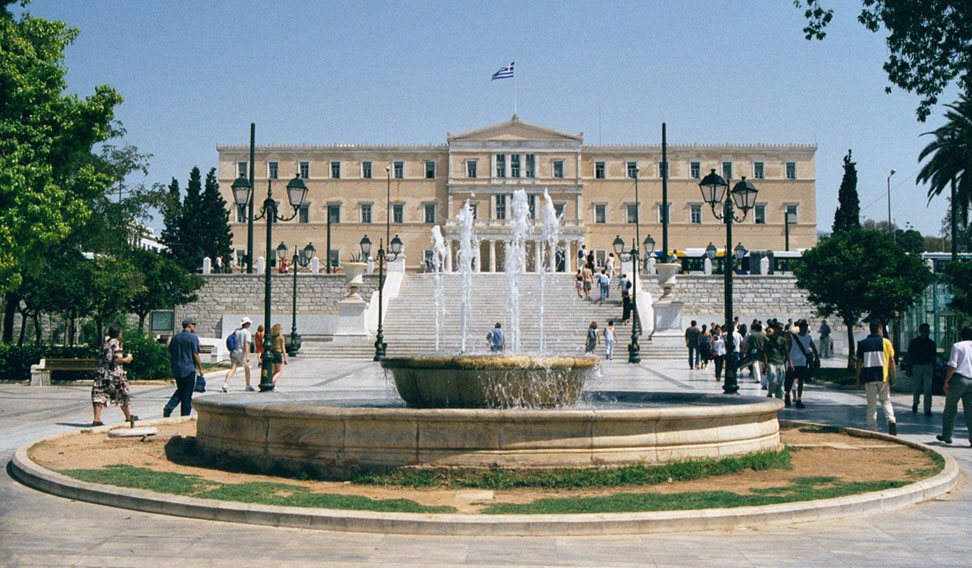 |
| ATHENS, GREECE |
 |
| ATHENS' LOCATION IN GREECE |
∙ GEOGRAPHY 101
∙ Land Mass/ Continent: Southeast Europe (Continent No. 7 of 7 on our journey)
∙ About Athens: Athens is the capital of, and largest city in, Greece
∙ Estimated Population: 655,780 in the city and 3.7 million in the metropolitan area
∙ Distance From Home (San Diego, CA): 6,938 miles
∙ The Water That Got Us Here: Mediterranean Sea (except that we flew over from Sharm, while the ship took the Red Sea to the Suez Canal, through the Mediterranean Sea)
 |
| SOCRATES |
∙ Currency: Euro (EUR), the 2nd most traded currency in the world after the U.S. dollar
∙ Official Language: Greek - duh!
∙ Local time:
∙ Average full-time annual gross wages in Greece: $27,460
∙ Athens is one of the world’s oldest cities
∙ Classical Athens (508-322 BC) was a powerful city-state
∙ It was a center for the arts, learning and philosophy and home to Plato, Aristotle, Socrates and other prominent philosophers, writers and politicians
∙ It is widely referred to as the cradle of Western Civilization and the birthplace of democracy, due largely to the impact of its cultural and political achievements on the rest of the European Continent during the 4th and 5th centuries BC
∙ Much of modern politics, artistic and scientific thought, literature and philosophy derives from this ancient society
∙ Today, Athens is the center of economic, industrial, political and cultural life in Greece
∙ In 2008, Athens was ranked the world’s 28th richest city by purchasing power and the 25th most expensive
∙ Athens hosted the first modern-day Olympic Games in 1896, and 108 years later, hosted the 2004 Summer Olympics
∙ Accordingly to my brother/sister-in-law (who’ve been there), the female vendors will at first seem like sweet ladies, but they’re not - you have to negotiate a lot, and there are pick-pockets everywhere
∙ There are 34 U.S. cities named after Athens, and 5 in other countries
∙ Travel video: http://www.youtube.com/user/THEWORLDOFTRAVEL#p/search/1/pIQwR9z_3no (Athens) and http://www.youtube.com/user/THEWORLDOFTRAVEL#p/search/0/WBe2tsFuLyA (Delphi)
∙ CLIMATE
∙ Athens has a subtropical Mediterranean climate, alternating between long, warm/dry summers and mild, wet winters
∙ Average low for April: 52.9
∙ Average high for April: 68.9
∙ HIGHLIGHTS/THINGS TO SEE
∙ Landmarks of the classical era
 |
| THE ACROPOLIS OF ATHENS |
 |
| THE PARTHENON |
∙ A wide variety of Roman and Ottoman (Turkish) monuments
| DAPHNI MONASTERY |
∙ The medieval Daphni Monastery: a UNESCO World Heritage Site northwest of the city in the suburb of Chaidari: a fine monument of 11th century Byzantine art, housing some of the best preserved mosaics – however, it was heavily damaged in a 1999 earthquake and is closed to the public for restoration work
 |
| GREEK PARLIAMENT BUILDING |
∙ Landmarks of the modern era
∙ The Hellenic Parliament Building
∙ The Athens Trilogy: National Library of Greece, Athens University and Academy of Athens
 |
| NATIONAL LIBRARY OF GREECE |
| ATHENS UNIVERSITY |
 |
| ACADEMY OF ATHENS |
∙ The new Acropolis Museum, opened to the public in June 2009, focused on findings at the Acropolis site
No comments:
Post a Comment